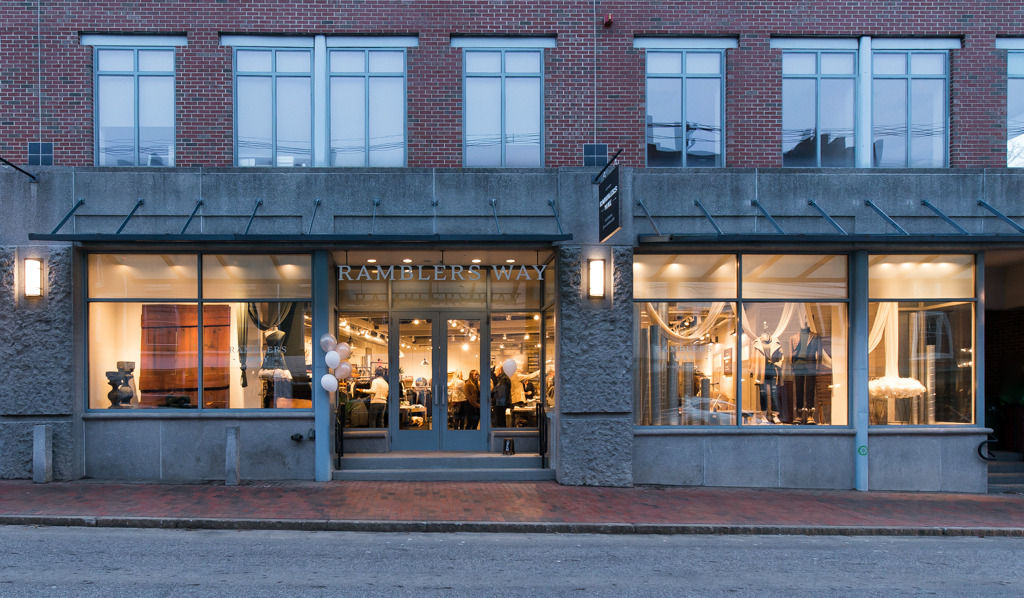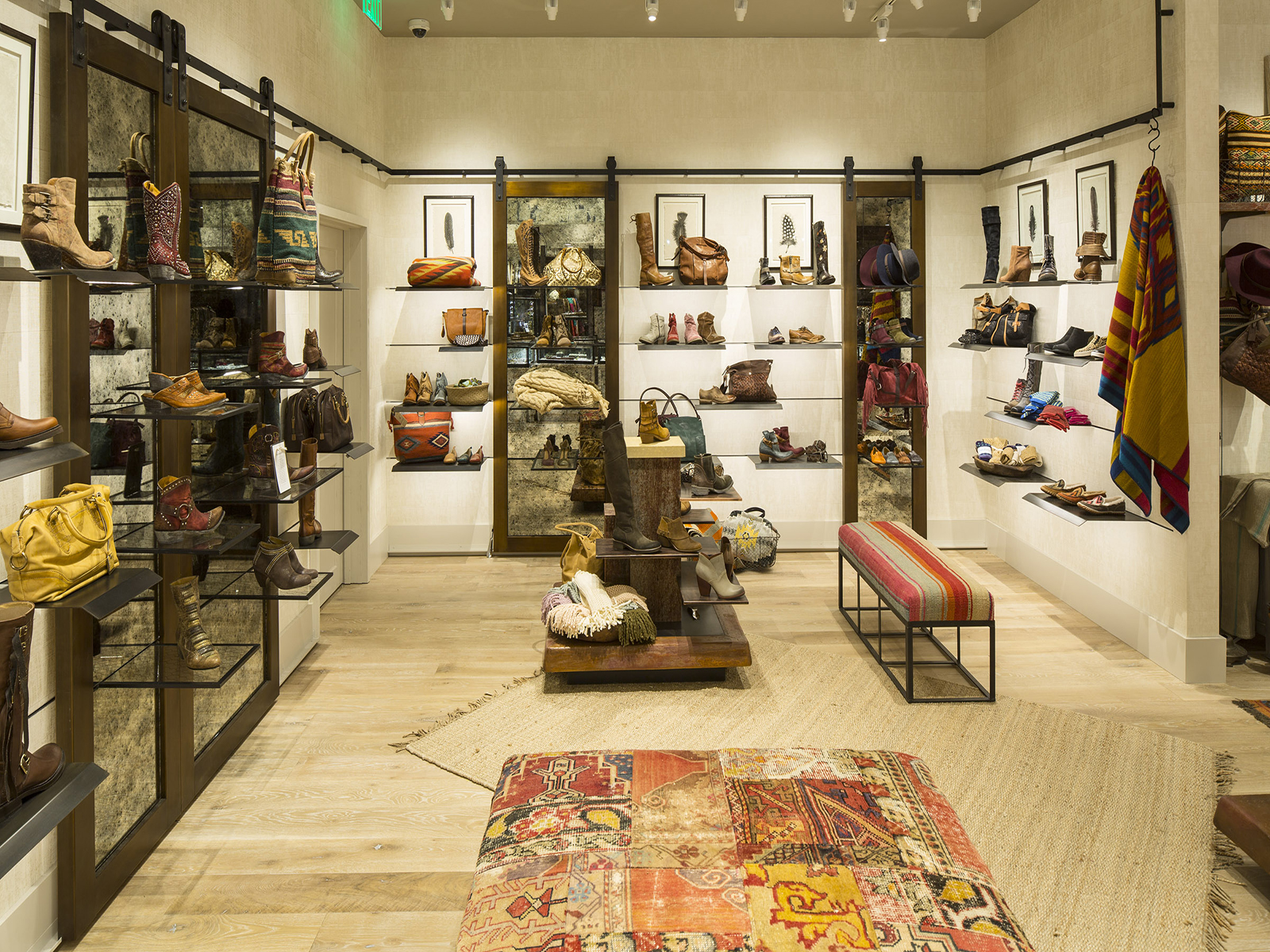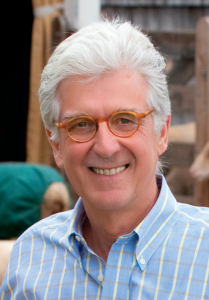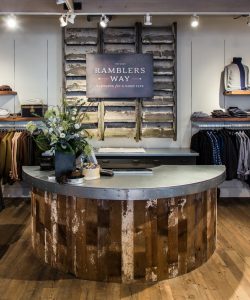Commentary
Sustainable Retail: Tom’s of Maine to Ramblers Way
May 09, 2017
By Tom Chappell, Founder – Tom’s of Maine and Ramblers Way
My entrepreneurial life has consistently created an intelligent choice from what is the normative offering. The creation of a natural toothpaste, for instance, invited the question, “What is a natural toothpaste?” The context for the idea in 1972 belonged to an emerging niche in the food business called “natural foods.” Natural foods were sold in retail stores found in inexpensive warehouse districts of Boston, San Francisco, New York, and Los Angeles of the 1970’s. To enter a store took a high degree of curiosity, as well as encouragement from a friend who told you about them. You would not idle into a natural food store because the entrance was covered with posters about Eastern gurus and foundations you had never heard of. To overcome one’s reluctance to such foreign personalities, something drove you to visit a natural food store.
Integrity/Authenticity/Immediacy
The movement was born in the counter-cultural movement from Japan called macrobiotics, espousing pure and natural food ingredients, unprocessed for wholeness, and free of artificial ingredients like preservatives, dyes, and sweeteners, all for a more complete nutrition. The movement was grown by a social consciousness that believed in the integrity of healthful ingredients, authenticity of its makers, and immediacy of experiential learning at the point of purchase. We created Tom’s of Maine’s natural toothpaste, attracted the consumer to look inside the formula for simple, understandable ingredients, free of any additives. Efficacy was in the mind of the consumer first and reinforced by the tangible evidence of regular brushing, and complimented by the profession of dental hygiene. I called Tom’s of Maine a “culture committed to goodness and responsibility.” We shared 10% of our profits with environmental non-profits and encouraged our associates to use 5% of their paid-time for community volunteerism.
Our success relied on nutritional education, small and local manufacturers, and experiential confirmation of efficacy. The authority of natural foods was socially disseminated, personally confirmed, emotionally aligned against big and distrustful corporations. Tom’s of Maine’s growth today is still based upon the consumer’s trust in the social nature of knowledge, its trust in its heritage, the dental hygienists advocacy, and now in Colgate, its owner.
What’s Next: Sustainable Fashion
My new entrepreneurial enterprise, Ramblers Way, offers an intelligent choice in clothing because of the consumer’s growing interest in sustainable choices, manufacturing in America and even in one’s own nearby geography, and the believability of a trusted entrepreneur and family.
“What is sustainable clothing?” We create fine quality wool clothing, versatile in use from home to office to airplane. The unethical conditions in which clothing is cut and sewn is becoming an abhorrent awareness; the discharge of chemicals and dyes into the planet’s rivers is hard to believe in today’s world; the waste created by cheap, throwaway garments is alarming. Apparel is the second largest polluter on earth!
We used our values to decide on a go-to-market strategy of selling wholesale to independent clothiers. While we expected them to evangelize a different product, they were not committed to our values sufficiently to educate the consumer about a Ramblers Way garment. After seven years of continuous effort, we abandoned wholesaling; opened our own concept store, invested in our website for functionality, imaging, and education, and changed our marketing strategy to direct-to-consumer. Without the independent retailer, we did not need the full margin to existing list prices and adjusted our list down by 35%. Inside the store, there is a prominently displayed cutting table, rolls of different colored fabrics that we make, and styles to choose from for your own custom garment made in a few hours.
We have an entirely new business experience growing rapidly among consumers who shop with an eye for their own values in order to find alignment. They are changing the world of retail.
Three Lessons Learned
1. Innovate with a product that meets the practical needs of the consumer but has a greater affinity to the values that drive their choices. Impulse shopping gives way to a more reflective shopping choice. Therefore, promote your values, educate the consumer on your brand difference, and become part of their social context of beliefs.
2. Innovate in a brick-and-mortar retail environment that excites, inspires, aligns, educates, and motivates. They will reward you at first with purchases in your store. They will stay with you by buying on your website. Be sure these two retail experiences are aligned in what is offered and at the same price. Ecommerce is a different challenge technologically, but the same business. The consumer prefers consistency in brand behavior, not variances.
3. Successful innovation is often a socially expanded phenomenon. Feed the social awareness with knowledge that contrast what is, versus what could be with your intelligent choice.
——
Tom Chappell is founder of Ramblers Way and a pioneering entrepreneur in the field of sustainable business. Together with his wife, Kate Chappell, Tom founded Ramblers Way in 2009. Following the sale of natural personal care company, Tom’s of Maine, in 2006, the Chappells were seeking a new industry in which to apply their knowledge of sustainable, values-grounded business. Headquartered in Kennebunk, Maine, Ramblers Way employs dozens of local artisans and other professionals in crafting innovative, sustainable, comfortable, and stylish clothing made from premium natural fabrics. As with Tom’s of Maine, the Chappells ground Ramblers Way in the values of sustainability, social responsibility, ethical business practices, and economic empowerment.
In 1970, Tom and Kate revolutionized the personal care industry when they founded Tom’s of Maine. As the environmental movement was beginning to take hold, the Chappells saw an opportunity for more environmentally conscious products. Tom’s of Maine was a different kind of company, based on the Chappells’ belief that companies should minimize their environmental impact while working towards positive change in local communities. Starting with just $5,000, Tom and Kate built the Tom’s brand into a household name, the gold standard in natural personal care products. In 2006, Colgate-Palmolive purchased a controlling stake in the company.
The Chappells established the nonprofit Saltwater Institute to train entrepreneurs and companies in the Chappell Values Based Business Model, which emphasizes: 1) Champion Quality; 2) Sustainability; 3) Made in America; 4) Family Owned and Managed; and 5) Transparency.
Tom has authored two books, The Soul of a Business: Managing for Profit and the Common Good and Managing Upside Down: Seven Intentions for Values-Centered Leadership. He holds a BA in English from Trinity College and a Masters of Theological Studies from Harvard Divinity School.
For more about Ramblers Way, click here.



